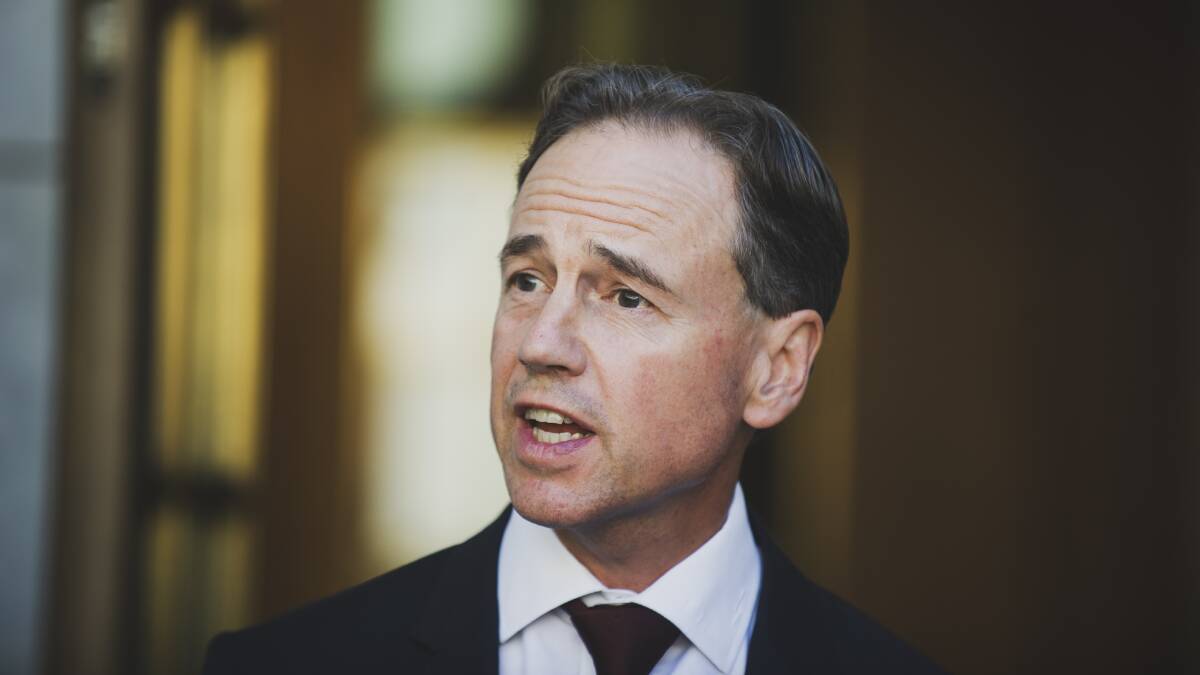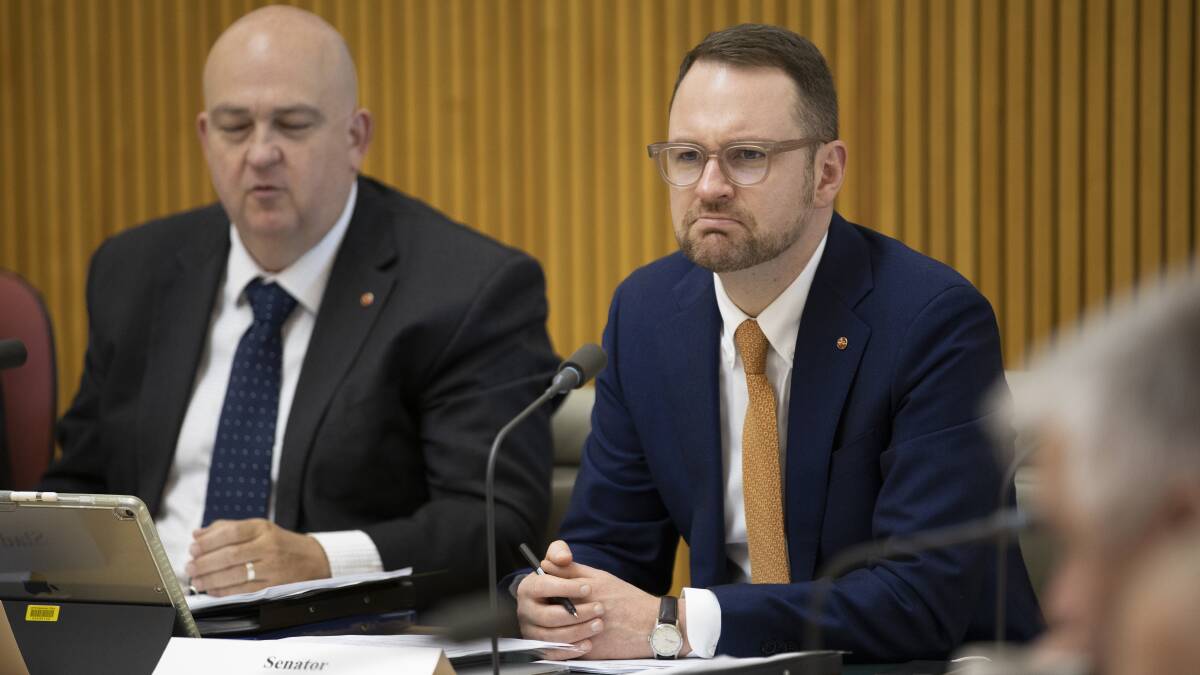
Another 97,000 coronavirus tests will arrive in Australia this week, Health Minister Greg Hunt announced on Tuesday night, supplying a temporary reprieve to concerns about a critical shortage.
Subscribe now for unlimited access.
or signup to continue reading
The government will not change the testing protocols, and still will only test when someone has been overseas or in contact with a known case and has symptoms.
But Mr Hunt said the tests would bolster supplies and support the ramp up that was already occurring. More than 81,000 tests had been performed with 414 Australians testing positive. Cases have increased four-fold in a week.
Mr Hunt said medical experts and scientists were working around the clock to secure the supplies needed for testing, with shortages of swabs and other materials.
"We're doing everything possible to avoid any shortages in testing equipment and supplies."

"We're focused on securing Australia's testing supplies and trying to have more types of tests. The aim is to have more tests and more types so we can avoid any disruption in the large scale testing regime we have in place in Australia."
To ensure Australia is not reliant on internationally manufactured testing kits, the Doherty Institute in Melbourne had developed an alternative testing process, and was working on options to roll the test out to other laboratories, he said.
The news came as Federal Liberal Senator Andrew Bragg became the third parliamentarian to test positive, after attending a wedding with known cases on March 6. Senator Bragg has attended hearings and events since, but could not be reached to clarify his movements or likely infectious period.
On Tuesday evening, the new national cabinet of state and territory leaders and the Prime Minister met via video link to consider more restrictions on indoor gatherings, including possible restrictions on how close people can sit in pubs. It is also expected to limit access to aged care homes while not blocking it altogether.
The group was to discuss school closures, which authorities have been reluctant to impose for fear of forcing health workers to stay home looking after their children, and unleashing potentially infectious children on grandparents and others who are vulnerable to the virus.
READ MORE:
The government is finalising plans to shore up the industries hardest hit including hospitality, tourism and air travel, in a package Finance Minister Mathias Cormann said would be "substantial".
"Many businesses, sadly, will close. Many workers will lose their jobs," he said, citing tourism, hospitality and the not-for-profit sector. "... What we are carefully considering is to what extent we might be able to channel those workers who have less work for a company like Qantas, but might be able to do more work for companies like Coles and Woolworths as we are working through the transition."
As the crisis deepens, doctors are becoming increasingly frustrated. Last Friday, 2476 doctors signed a letter to Prime Minister Scott Morrison calling for widespread testing and strong measures. Western Australian doctor Hemant Garg, who initiated the letter, said he had had no response since sending it on March 13. Doctors were seeing people with symptoms and were unable to do anything; he had referred a hotel worker who had had contact with tourists from China and Italy, but said he had no confidence the man would be tested.
"Is this person a potential coronavirus case? We don't know. Can we test them? No we can't because the government has officially banned GPs from testing people for coronavirus, so were sitting there exposed," he said, blasting the mixed messages from a government "telling us we are all over it", while hospitals cleared theatres and trained nurses in preparation for the "disaster" to come.
World Health Organisation director-general Tedros Adhanom Ghebreyesus has urged countries to "test, test, test".
"All countries should be able to test all suspected cases. They cannot fight this pandemic blindfolded," he said.
Mr Hunt said on Tuesday Australia was testing at "one of the highest rates of any country in the world".
"We have actually one of the most advanced testing regimes in the world," he said. "We have had over 30,000 tests conducted in Australia, and I expect new figures in the next 24 hours which will be significantly in advance of that."
Asked at what point Australia would move to European-style lockdowns, where schools and bars and other venues have been ordered shut, Mr Hunt said Australia wanted to ensure it was "not making the problem worse by destroying the capacity for our health workers, our medical workers [to work], or having an impact on supplies for food and other things".
Mr Hunt announced an expansion of Medicare funding for telephone consultations. Midwives are now part of the telehealth system, along with general surgeons, psychiatrists, and geriatricians.
- For information on COVID-19, please go to the federal Health Department's website.
- You can also call the Coronavirus Health Information Line on 1800 020 080
- If you have serious symptoms, such as difficulty breathing, call Triple Zero (000)
We have removed our paywall from our stories about the coronavirus. This is a rapidly changing situation and we want to make sure our readers are as informed as possible. If you would like to support our journalists you can subscribe here.


